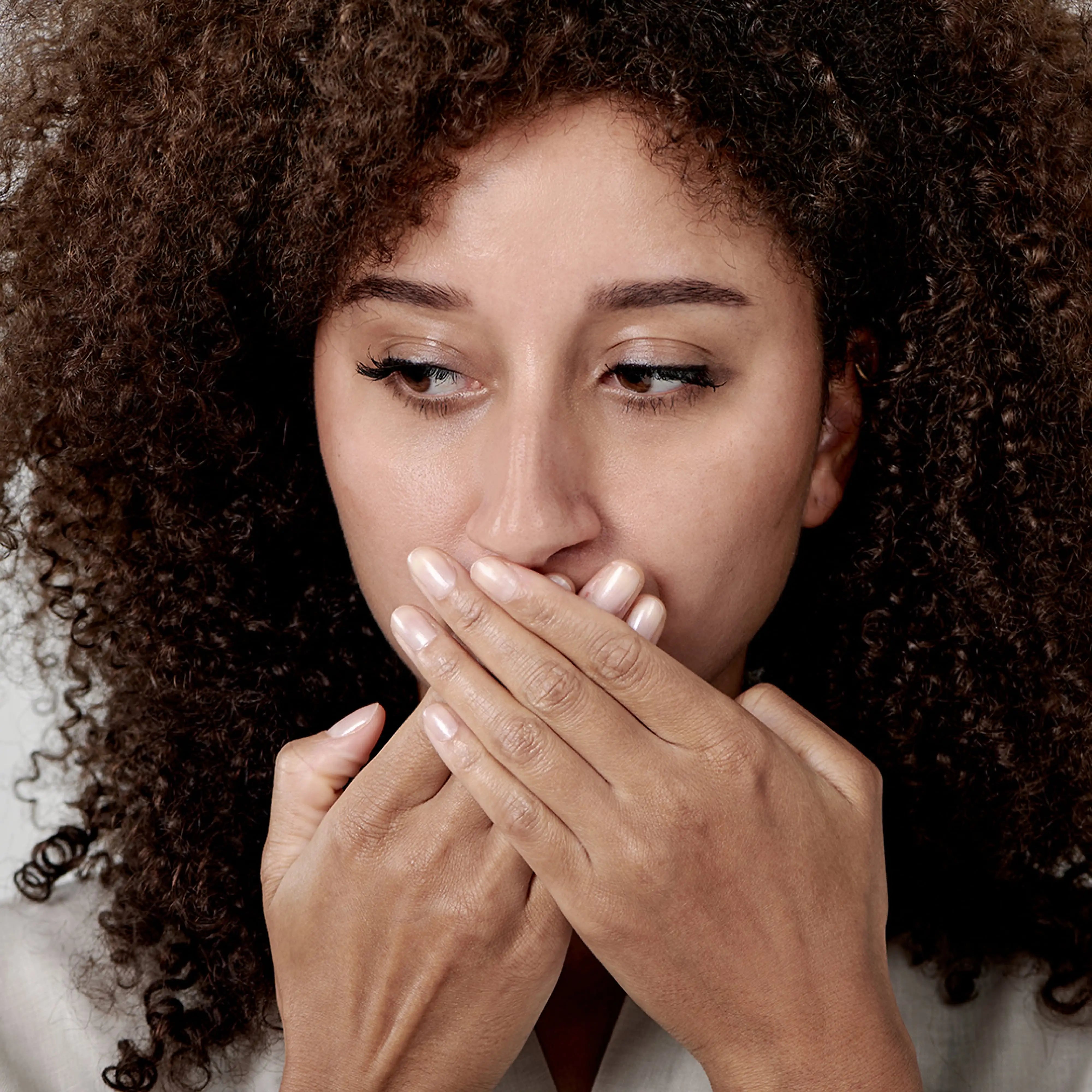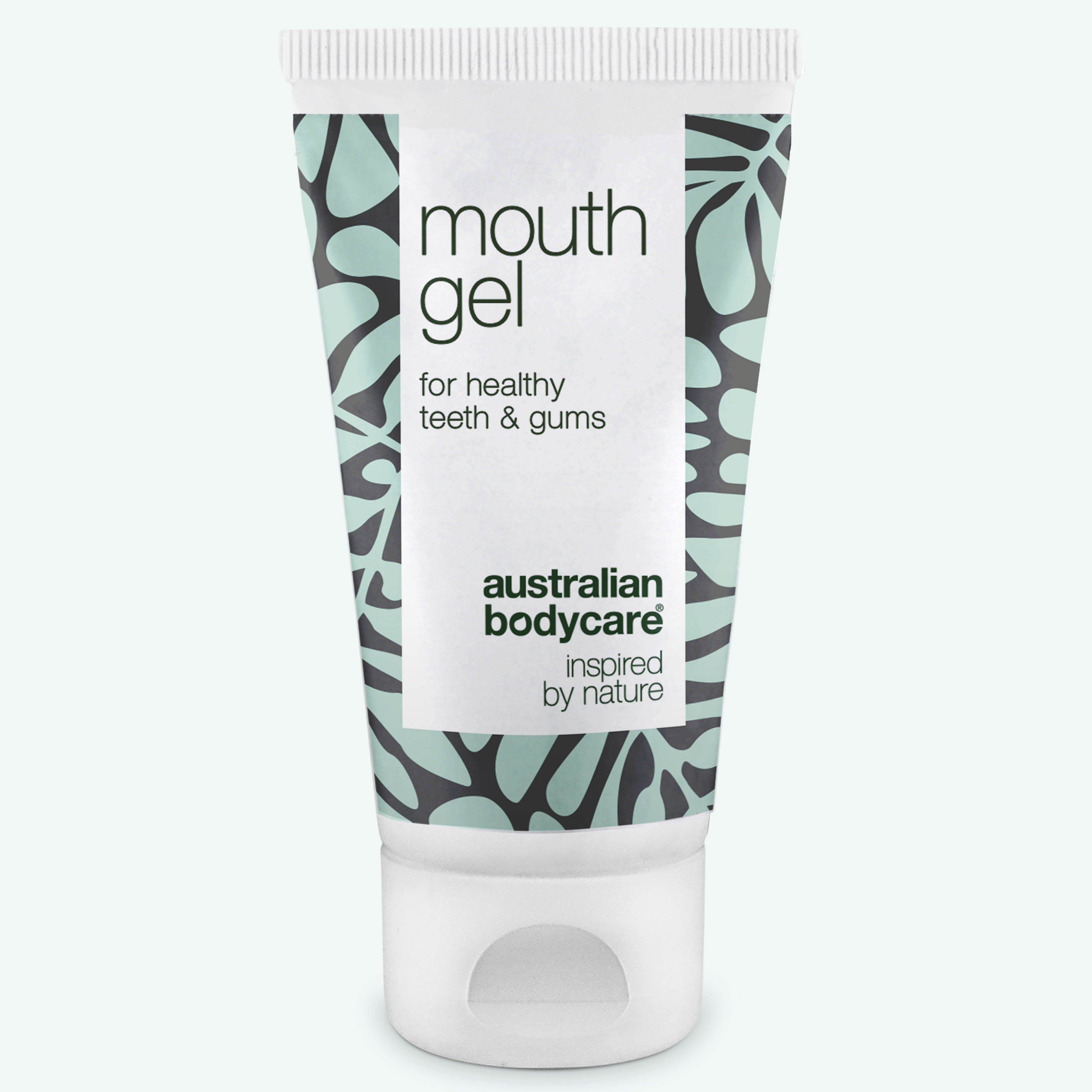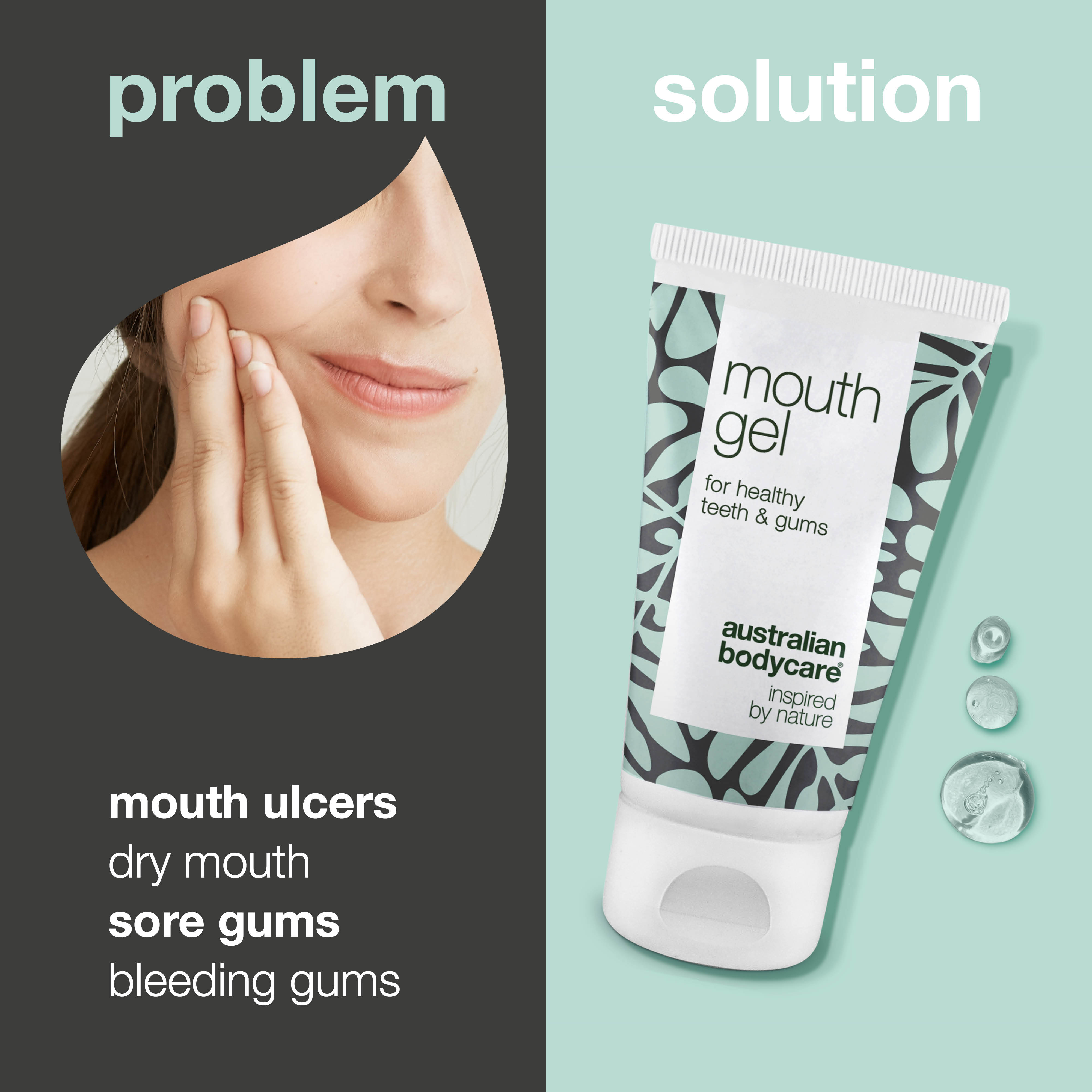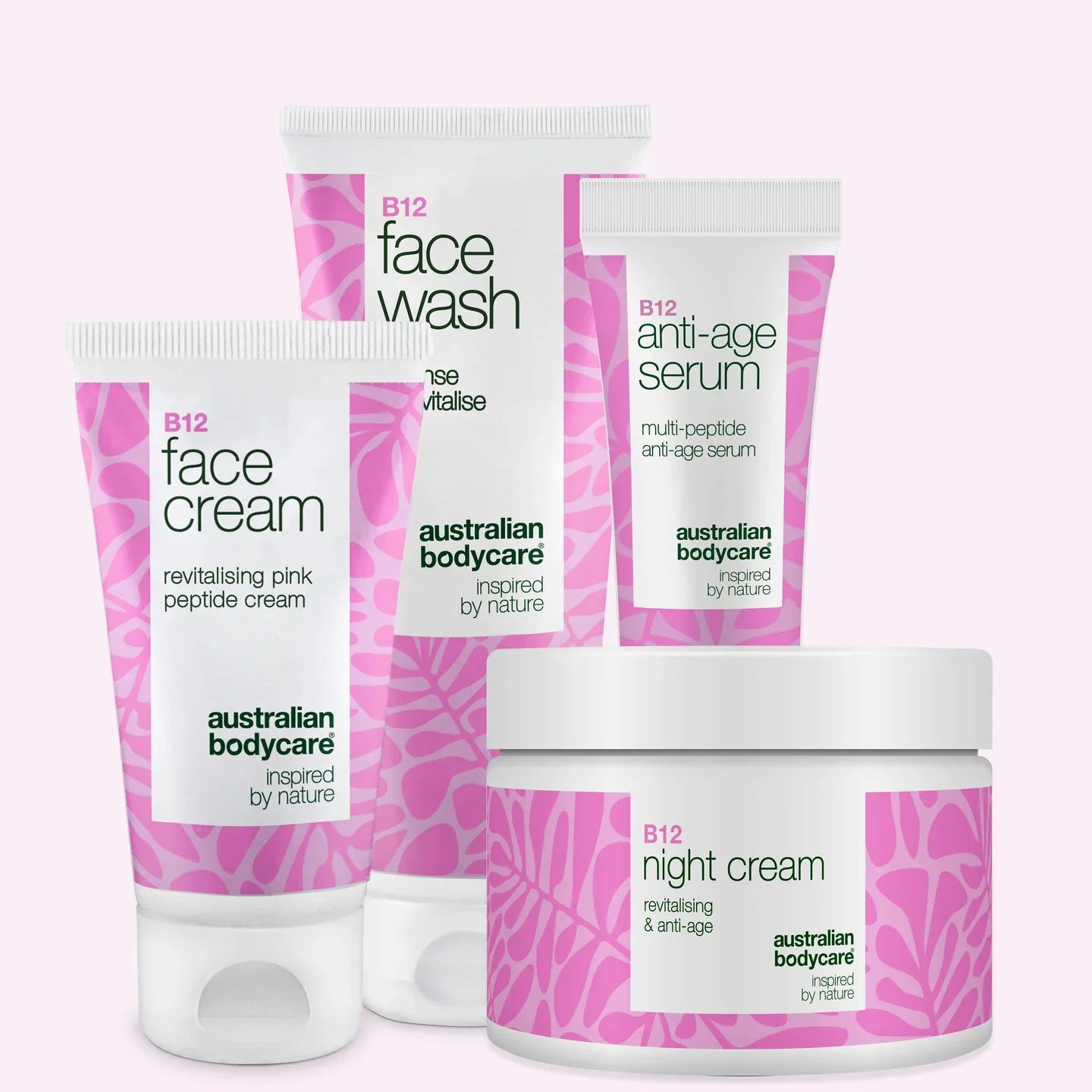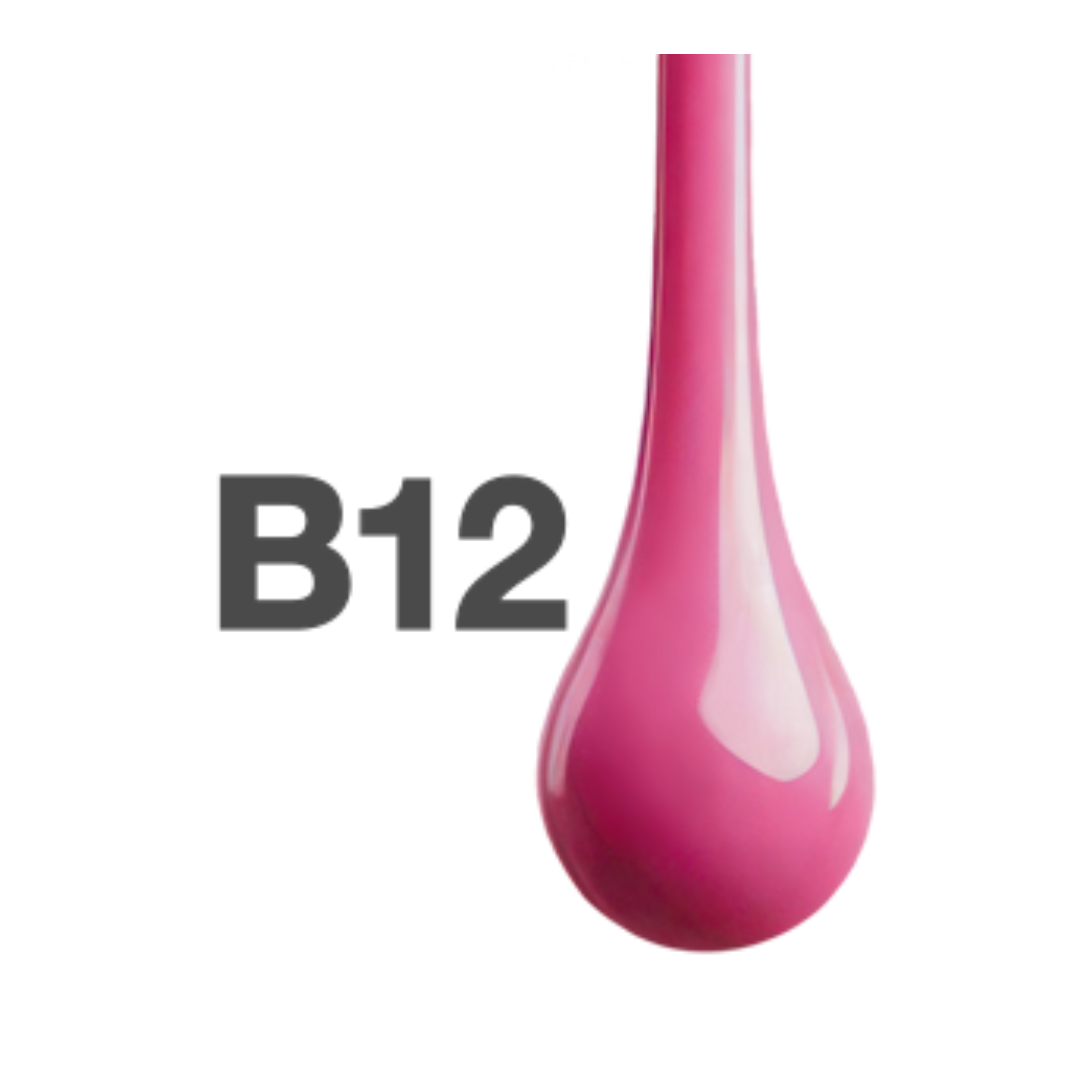Oral thrush – How to treat irritating mouth thrush
Oral thrush (or mouth thrush) can appear when there is a change in the chemistry of the oral cavity, for one of several possible reasons. Oral thrush is unpleasant, and it should always be treated, but fortunately, good treatments are available.
Table of contents
What are the symptoms of oral thrush?
Oral thrush is a fungal infection of the mucous membranes in the mouth. The symptoms are white or yellowish patches on the tongue, palate and inside the cheeks. These patches may be slightly raised. If they are scraped, it may cause small sores, which are tender and bleed easily.
In some cases the fungus can spread to the gums, tonsils or throat, where there may be redness or inflammation.
Oral thrush can cause an uncomfortable burning feeling in the mouth and throat. It is also normal to have an unpleasant metal taste in the mouth or simply a generally unpleasant taste, dryness in the mouth or cracks at the corners of the mouth.
If you suspect that you have mouth thrush, you should visit your doctor, so that you can have it properly checked. This applies especially if you already have a weakened immune response.
The symptoms of oral thrush can be confused with the symptoms of other diseases or conditions, and that is why it is important to be examined. Your doctor (or dentist) will always be able to decide whether it is oral thrush or whether the symptoms are caused by something else.
The doctor will normally take a scrape from the fungus in your mouth, which is then cultured and examined, and/or take a blood test.
What is oral thrush?
Oral thrush is also called mouth thrush, fungus in the oral cavity or candidiasis, and in small children it is normally just called thrush. The medical term for oral thrush is oral candidiasis.
Oral thrush is caused by the yeast fungus Candida albicans, which is always present in small numbers on humans. In general, we have fungal spores all over our skin and bodies – and in our surroundings. This is quite natural.
When the fungus suddenly grows excessively, it causes trouble, and we say we have a fungus.
Normally the body can create a balance, so that growth conditions are not too favourable for bacteria, viruses and fungi, but if the immune response is weakened, for example by medication or illness, a fungal infection such as oral thrush can develop more easily.
It is definitely not pleasant to have a fungal infection in the mouth, so it should always be treated. In people with a reduced immune response it is especially important to find out immediately whether the symptoms are due to fungus, or whether they are caused by something quite different.
How do you treat oral thrush?
Oral thrush must always be treated immediately, because it is an uncomfortable condition that will rarely clear up by itself.
Apart from that, it is important to find the cause of the fungus, so that the cause can be dealt with too – otherwise there will soon be new outbreaks of fungus in the mouth.
If you suspect that you have mouth thrush, or you are in doubt about what causes the symptoms, you should see a doctor and have it examined.
It is especially important to see a doctor if you already have a reduced immune response, for example because of illness, age or from taking medication.
The symptoms may be caused by oral thrush, but there may be another cause, and you should therefore let a doctor look at them.
Remedies for oral thrush
The usual treatment for oral thrush is a fungicidal remedy that is only available on prescription. The medication is supplied either as a syrup or a gel.
In some cases it may help to rinse the mouth with a chlorhexidine solution. If the infection is severe, it may be necessary to supplement this with tablets.
In milder cases of oral thrush, it will always be a good idea to try milder remedies and perhaps natural remedies first, as the stronger treatments for oral thrush may have certain side effects.
We recommend using a Mouth Gel containing Tea Tree Oil to relieve the irritation and itching in the mouth. Natural Tea Tree Oil is known to be effective against bacteria, itching and irritation. Tea Tree Oil does not taste very pleasant, but the taste disappears after a short time, and it leaves a healthy, clean feeling in the mouth. It also helps to combat bad breath if you do this three or four times a week.
It is effective in many ways against symptoms in the oral cavity – both to relieve them and to prevent a variety of problems:
- It is effective against irritation in the mouth.
- It keeps the mouth clean.
- It prevents bad breath.
- It keeps the mouth fresh and healthy.
- It combats bacteria in the mouth.
- It combats cracks at the corners of the mouth.
If you have oral thrush, it must first and foremost be treated. Then, when you have got rid of the fungal infection, it is wise to think about what you can do yourself to prevent it from coming back.
Perhaps you should talk to your doctor or dentist about what is the best way to prevent new fungal attacks.
If you have dentures, for instance, you may need new ones that fit better, and additionally, the dentist can tell you the best way to maintain good oral hygiene when you have dentures. If you have diabetes, for example, you may need to get your diabetes under better control.
How can you prevent oral thrush?
Obviously, some of the causes of oral thrush will be beyond your influence, while you can take steps yourself to prevent some of them or reduce the risk of a new fungal infection:
- You can maintain good oral hygiene by supplementing tooth brushing with brushing your tongue and mouth with a soft toothbrush.
- You can avoid smoking.
- You can avoid – or at least cut down on – sugar, sweet things and carbonated drinks.
- You can make sure you rinse your mouth out with water if you have used a steroid inhaler with cortisone.
Is oral thrush infectious?
Some types of fungus are infections, while others are not. Athlete's foot, for instance, is a fungal infection that is easily passed on, while oral thrush is not nearly so infectious.
Oral thrush is not generally passed on through ordinary physical contact, or by kissing.
In most cases you will not be receptive to infection with oral thrush unless you have a reduced immune reaction.
However, babies with oral thrush can infect their mothers’ nipples with thrush during breast feeding. A baby can be infected at birth if the mother has fungus in the vagina.
When babies get thrush relatively easily, it is probably because their immune system is not yet fully developed, so they are more receptive to fungal infections.
However, most people will not get fungal infections in the mouth through infection from others. The fungal infection will develop because for one reason or another there is a change in the chemistry in the mouth, and conditions are therefore favourable for the fungi to proliferate.
Why do people get oral thrush?
Oral thrush develops if the chemistry in the mouth changes; that means the natural balance of microorganisms has been disturbed. This typically happens in people with a weakened immune response.
Those who are completely healthy will rarely get oral thrush, and even if they do, it is normally harmless.
Oral thrush chiefly affects people with a reduced immune response. For them, oral thrush can be dangerous if it is not treated.
In certain cases the fungus can spread to the digestive system or to the air passages, which can be serious.
What are the causes of oral thrush?
There are many possible causes of oral thrush. The common factor in them all is that for one reason or another the natural balance between useful and harmful bacteria and fungi has been disturbed.
Medical treatments with penicillin or other antibiotics are one of the most frequent causes of oral thrush, because the medication kills bacteria, but not fungi, which means conditions are extra favourable for fungal growth.
Some of the most frequent causes of oral thrush are:
- Antibiotics such as penicillin.
- Steroid inhalers.
- Vitamin deficiency or anaemia.
- Reduced production of saliva.
- Using dentures.
- Metabolic conditions or immunodeficiency.
- A weakened or reduced immune response in cancer patients undergoing chemotherapy or radiation therapy.
- Weakened or reduced immune response in patients with AIDS/HIV.
- Drug abuse.
- Stress or poor diet.
- Piercings in the tongue.
- Poor oral hygiene or poor denture hygiene.
- A large and frequent consumption of sugar, sweet foods and carbonated drinks.
FAQ about oral thrush
Is oral thrush infectious?
Oral thrush can be infectious, but it is not caught through kissing, for example. In general, oral thrush can be passed on, but it will not necessarily happen. Most often, oral thrush affects people with reduced immune response. However, infants with oral thrush can infect their mothers’ nipples with thrush during breast feeding. A baby can be infected with fungus from its mother at birth if the mother has fungus in the vagina.
What is oral thrush?
A fungal attack in the mouth is called oral thrush, or in babies, simply thrush. It is an infection with the yeast fungus Candida albicans. It appears as white patches on the tongue and palate and inside the cheeks. The white patches are often accompanied by an unpleasant metal taste in the mouth. An attack of oral thrush means that there has been a change in the chemistry in the mouth.
Why do people get oral thrush?
Oral thrush may be due to a variety of causes. Most often, it affects people with reduced immune reaction because of illness or impairment. It maybe due to smoking, use of dentures, a piercing in the tongue, medication or treatment with antibiotics. Newborn babies are also at risk, if the mother has a fungus in the vagina.
How do people get oral thrush?
An attack of oral thrush is always due to a change in the chemistry in the mouth. We all have microorganisms and fungi in our bodies; this is harmless and quite normal. If the natural balance is disturbed, however, fungal infections can develop. They most often affect people who already have a reduced immune reaction.
Can a vaginal fungus cause an infection n the mouth?
Vaginal fungus and oral thrush are both due to the same yeast fungus, Candida, and it is a fungal infection that can be passed on. If you are pregnant and have fungus in the vagina, you can pass it on to your baby when giving birth, so that the baby develops mouth thrush. You should always have a fungal infection treated, so that you do not give it to others.
How long does oral thrush last?
If you have oral thrush, it is important to have the cause of the fungal infection treated. If it is treated, and you also have the infection in your mouth treated, you will normally be free of symptoms in a few days, but it can also take several weeks, and normally you will have to continue treatment after the symptoms have cleared up. Mild cases of oral thrush can be treated faster than severe cases.
Does oral thrush hurt?
Oral thrush can be painful, and therefore should always be treated. The symptoms may be a stinging and burning sensation. It is not unusual to have a taste of metal in the mouth, dry mouth, and painful cracks at the corners of the mouth.
How fast does fungus disappear?
It is relatively rare for fungus to disappear of its own accord without treatment, so that is why it is important to get treatment quickly for the fungal infection, so that you get rid of the problems. When the fungus infection is treated – and whatever triggered the infection – you will normally be free of fungus in a few days or possibly a few weeks. The time treatment takes will depend on how severe you fungal infection is.
Can you treat oral thrush yourself?
There are no over-the-counter remedies for use against oral thrush, so it is best to go to your GP. This also applies if you have a weakened immune response, so that you can have the symptoms examined, and your doctor can find out whether they are due to fungus or caused by something quite different. Apart from treatment, there are several things you can do to prevent new attacks of oral thrush.

